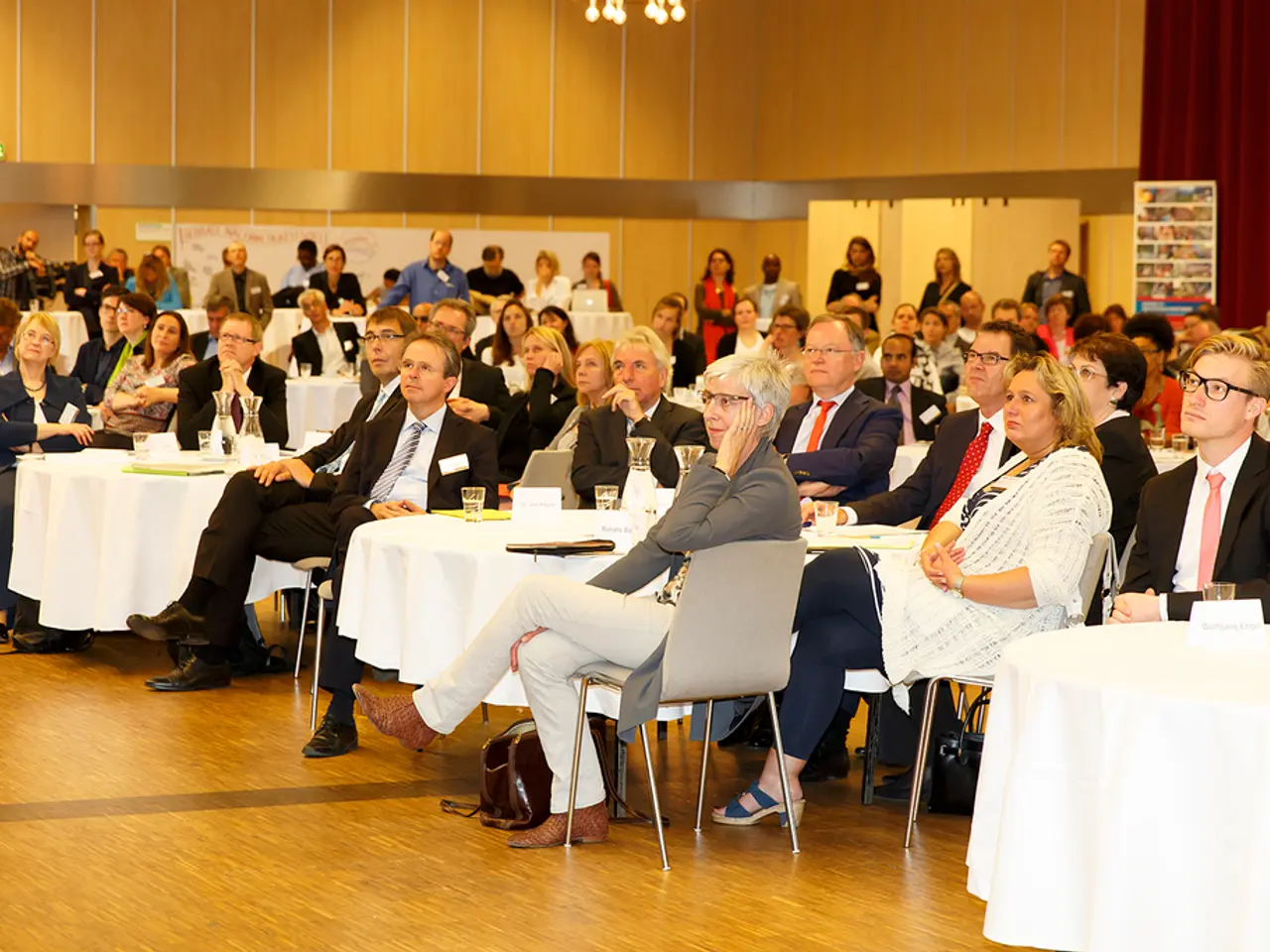Work-Focused Active Listening Activities: 11 Effective Methods to Employ
Improving active listening skills in the workplace is essential for effective communication and fostering a positive work environment. Here are some practical exercises and techniques that can help:
1. **Ask Open-Ended Questions:** Encourage team members to ask probing questions based on a given scenario to clarify understanding and encourage deeper discussion. This develops the ability to listen attentively and inquire meaningfully.
2. **Role-Playing Activities:** Use role-play where one person speaks, another listens actively, and a third observes to spot active listening behaviors such as paraphrasing, nodding, and maintaining eye contact. This builds awareness and practice of the full range of active listening skills in realistic contexts.
3. **Paraphrasing and Reflecting:** After someone speaks, paraphrase their message back to them to confirm understanding and show empathy, especially by identifying emotions and values beyond just facts. This fosters deeper connection and comprehension.
4. **Non-Verbal Communication Practice:** Focus on maintaining appropriate eye contact, smiling at intervals, nodding, and adopting an interested posture (e.g., leaning forward, slanting head). These non-verbal cues reinforce engagement and attentiveness.
5. **Mindful Listening Exercises:** Practice silence while a partner shares something meaningful for a few minutes; concentrate fully on their words without preparing a response or letting your mind wander. Then reflect back what you heard to test listening quality.
6. **Avoid Interrupting:** Train yourself to let speakers finish without interrupting, which encourages respect and better understanding.
7. **Follow-Up Question Practice:** After listening, ask thoughtful follow-up questions that demonstrate genuine interest and clarify key points, enhancing mutual understanding.
8. **The "Echo" Game:** This exercise trains the brain to listen to the speaker's words rather than jumping ahead to a response.
9. **Clarifying Questions Drill:** Encourage asking open-ended questions to push the conversation deeper and uncover important elements.
10. **Body Language Awareness Exercise:** Help individuals become more aware of their own body language and its impact on listeners.
11. **The "No Interruptions" Challenge:** Promotes equal contribution and intentional listening by allowing only one person to speak at a time.
12. **Writing-Based Communication:** For part or all of a meeting, communicate only through writing notes, written sticky notes, or through a shared digital document.
13. **The "One-Minute Pause" Challenge:** Suggest a one-minute pause before anyone responds when a challenging topic or heated discussion arises.
14. **Role-Swapping Discussions:** Each person will tell the others what their perspective is on a relevant workplace issue, then they switch roles and defend the alternative position.
15. **Reflective Journaling:** Keep a journal of the most important conversations that you have at your workplace to reflect on what affected your listening.
By consistently incorporating these exercises into your workplace routine, you can develop workplace active listening skills, leading to improved teamwork, reduced misunderstandings, and better employee morale. Poor active listening can lead to misunderstandings, conflicts, and an environment of uncertainty, fear, and distrust. Enhancing active listening can help create a more productive and harmonious work environment.
- To further personal growth and career development, consistently incorporating active listening exercises can also support skills training and education-and-self-development.
- By fostering self-awareness through writing-based communication and reflective journaling in the workplace, employees can enhance their personal development and overall health-and-wellness.
- Implementing non-verbal communication practice may help increase productivity and workplace-wellness, as effective listening can contribute to a positive work environment.
- Frequent active listening exercises can lead to increased accountability and better employee engagement, resulting in a more cohesive team and stronger organizational structure.
- As active listening skills become ingrained in the workplace, the overall active listening skills, self-awareness, and personal development of each individual might have positive implications on workplace morale and employee satisfaction.
- Consider a lifestyle that includes continuous education-and-self-development through journaling and active listening exercises as part of ongoing personal-growth and self-improvement.
- Applying scientific research strategies to active listening practices can provide measurable data on the impact of these techniques on productivity, employee satisfaction, and overall organizational success.




